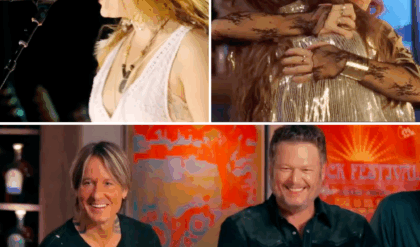The highly anticipated second season of HBO’s The Last of Us has come and gone, leaving behind a trail of disappointed fans, heated online debates, and a surprising reaction from its lead star, Bella Ramsey. The show, which captivated audiences with its faithful adaptation of the beloved video game in its first season, stumbled significantly in its sophomore effort, earning widespread criticism for its creative choices and diverging narrative. Amid this backlash, Bella Ramsey, who plays the iconic character Ellie, has sparked further controversy with comments that many fans have called dismissive and inflammatory. This article delves into the reasons behind the perceived failure of The Last of Us Season 2, Ramsey’s polarizing response to critics, and the broader implications for the show’s future as it heads into its third season.
A Promising Start Derailed by Creative Missteps
When The Last of Us premiered in 2023, it was hailed as a triumph in video game adaptations, blending the emotional depth of Naughty Dog’s post-apocalyptic masterpiece with cinematic storytelling. The first season, starring Pedro Pascal as Joel and Bella Ramsey as Ellie, earned a 96% critics’ score on Rotten Tomatoes and an 86% audience score, uniting gamers and new viewers alike in their appreciation for its heartfelt narrative and stellar performances. The story of Joel and Ellie’s journey across a ravaged United States, bound by a surrogate father-daughter relationship, resonated deeply, setting high expectations for Season 2.
However, Season 2, which adapted key events from The Last of Us Part II, failed to recapture the magic of its predecessor. Airing earlier this year, the season faced immediate scrutiny for its bold deviations from the source material. While critics awarded it a respectable 91% on Rotten Tomatoes, audience reception was far less forgiving, with a dismal 37% score reflecting widespread dissatisfaction. Viewership also took a hit, with reports indicating a 55% drop in viewership for the Season 2 finale compared to Season 1’s conclusion. Fans pointed to several key issues that contributed to this perceived flop.
One of the most contentious decisions was the handling of Joel’s storyline, a pivotal moment from the game that shocked players when it was first released in 2020. Without delving into spoilers, the show’s adaptation of this event was seen by many as rushed and lacking the emotional weight that made the game’s version so impactful. Additionally, changes to Ellie’s character arc drew ire, with fans arguing that her portrayal veered too far from the relentless, complex figure in the game. Showrunner Craig Mazin’s decision to alter certain scenes, such as Ellie’s dynamics with new characters like Dina, played by Isabela Merced, and Abby, played by Kaitlyn Dever, further fueled the backlash. For instance, a line about Ellie’s excitement over a personal milestone felt out of character to many, with Ramsey themselves admitting in an interview that it was a spontaneous addition by Mazin, not deeply thought out.
The departure of Naughty Dog’s Neil Druckmann, who co-created the game and served as a key creative force in the show’s first two seasons, also raised concerns. Druckmann announced his exit before Season 3’s production began, citing his focus on new projects at Naughty Dog, including the upcoming game Intergalactic: The Heretic Prophet. His absence left Mazin as the sole showrunner, prompting fans to question whether the series could maintain its connection to the source material without one of its original architects.
Bella Ramsey’s Response: A Firestorm of Controversy
Amid this wave of criticism, Bella Ramsey’s comments on The Awardist podcast ignited a firestorm. When asked about the “louder critics” of Season 2, Ramsey responded with a blunt message: “You don’t have to watch it. If you hate it that much, the game exists. You can just play the game again. You don’t have to watch it, but if you do want to watch it, then I hope you enjoy it.” The statement, while pragmatic on the surface, was perceived by many fans as dismissive and antagonistic, alienating a portion of the show’s dedicated audience.
Ramsey’s remarks came after months of intense scrutiny, not only about the show’s narrative choices but also about their own casting as Ellie. Since the show’s inception, a vocal subset of fans has criticized Ramsey’s appearance, arguing that they don’t resemble the game’s version of Ellie closely enough. These critiques, often laced with personal attacks and toxic rhetoric, have targeted Ramsey’s physical attributes and even their nonbinary identity, leading the actor to deactivate their social media accounts to avoid the harassment. In interviews, Ramsey has expressed frustration with the relentless focus on their looks, noting that showrunner Craig Mazin prioritized their emotional portrayal of Ellie over physical resemblance.
However, Ramsey’s suggestion that dissatisfied fans simply “play the game again” struck a nerve, particularly among those who felt the show had betrayed the spirit of the source material. Social media platforms, particularly Reddit and X, erupted with reactions, with some users calling the comments “petulant” and “unprofessional.” One X post summed up the sentiment: “Telling fans not to watch your show is a wild way to tank your own project.” Others defended Ramsey, arguing that the actor was simply setting boundaries against toxic criticism and had no control over the show’s creative direction. “Bella’s just doing their job,” one supporter wrote. “Blaming them for the writers’ choices is unfair.”
The backlash to Ramsey’s comments highlights a broader issue in the entertainment industry: the delicate balance between creators, actors, and passionate fanbases. For a franchise as beloved as The Last of Us, fans feel a sense of ownership over the story, particularly when it originates from a medium as interactive as a video game. Ramsey’s response, while honest, was seen by some as dismissive of that emotional investment, further fracturing an already divided fandom.
The Fallout: Fan Reactions and Industry Implications
The fan response to Season 2’s perceived failure and Ramsey’s comments has been polarized. On one hand, some viewers remain loyal to the series, praising its performances and willingness to take risks. Supporters argue that adaptations should not be bound to every detail of the source material and that Ramsey’s portrayal of Ellie remains a highlight despite the season’s shortcomings. Others, however, have taken to review-bombing the show on platforms like Rotten Tomatoes, targeting not only the narrative but also Ramsey personally, with some comments veering into homophobic and transphobic territory due to Ellie’s same-sex relationship and Ramsey’s nonbinary identity.
This toxicity has drawn comparisons to other high-profile cases, such as Millie Bobby Brown’s response to criticism during her The Electric State press tour. Brown publicly called out media and fans for focusing on her appearance, a move some suggest Ramsey could emulate to address the hate directly. However, Ramsey has chosen to disengage, stating in interviews that they avoid reading negative feedback because “there’s nothing that can be changed or altered” once the show is out.
From an industry perspective, Ramsey’s comments and the backlash to Season 2 raise questions about how studios and creators navigate fan expectations in the age of social media. Telling fans not to watch a show, especially one as high-profile as The Last of Us, is a risky move in a streaming landscape where viewership is critical. HBO has positioned the series as a prestige drama, with Season 3 already greenlit for a 2027 release. However, the significant drop in audience engagement and the fractured fanbase could pose challenges for its longevity, particularly as the show shifts focus to Abby’s storyline, with Kaitlyn Dever taking a more central role.
Looking Ahead: Can Season 3 Redeem the Series?
As The Last of Us prepares for its third season, the stakes are higher than ever. Showrunner Craig Mazin has promised a longer season, more in line with Season 1’s nine episodes, and has expressed confidence in continuing the story without Druckmann’s direct involvement. The narrative is expected to delve deeper into Abby’s perspective, mirroring the structure of The Last of Us Part II, which alternates between Ellie and Abby’s viewpoints. This shift could either alienate fans further or offer a fresh start to win back those who felt Season 2 missed the mark.
For Bella Ramsey, the controversy surrounding their comments underscores the challenges of being a young actor in a high-profile adaptation. At 21, Ramsey has already made history as the first nonbinary actor to receive multiple Emmy nominations, a testament to their talent and resilience. Yet, the relentless scrutiny over their appearance and the show’s direction has taken a toll, prompting Ramsey to prioritize their mental health by stepping away from social media.
The fallout from Season 2 and Ramsey’s response serves as a cautionary tale about the power of fan expectations and the risks of alienating an audience. While Ramsey’s suggestion to “play the game again” may have been intended as a practical solution, it has instead fueled a narrative of disconnect between the show’s creators and its fans. As The Last of Us moves forward, HBO and Mazin will need to navigate these tensions carefully to restore the series’ former glory. For now, the question remains: will fans take Ramsey’s advice and abandon the show, or will they return for Season 3 in hopes of a redemption arc? Only time will tell.





